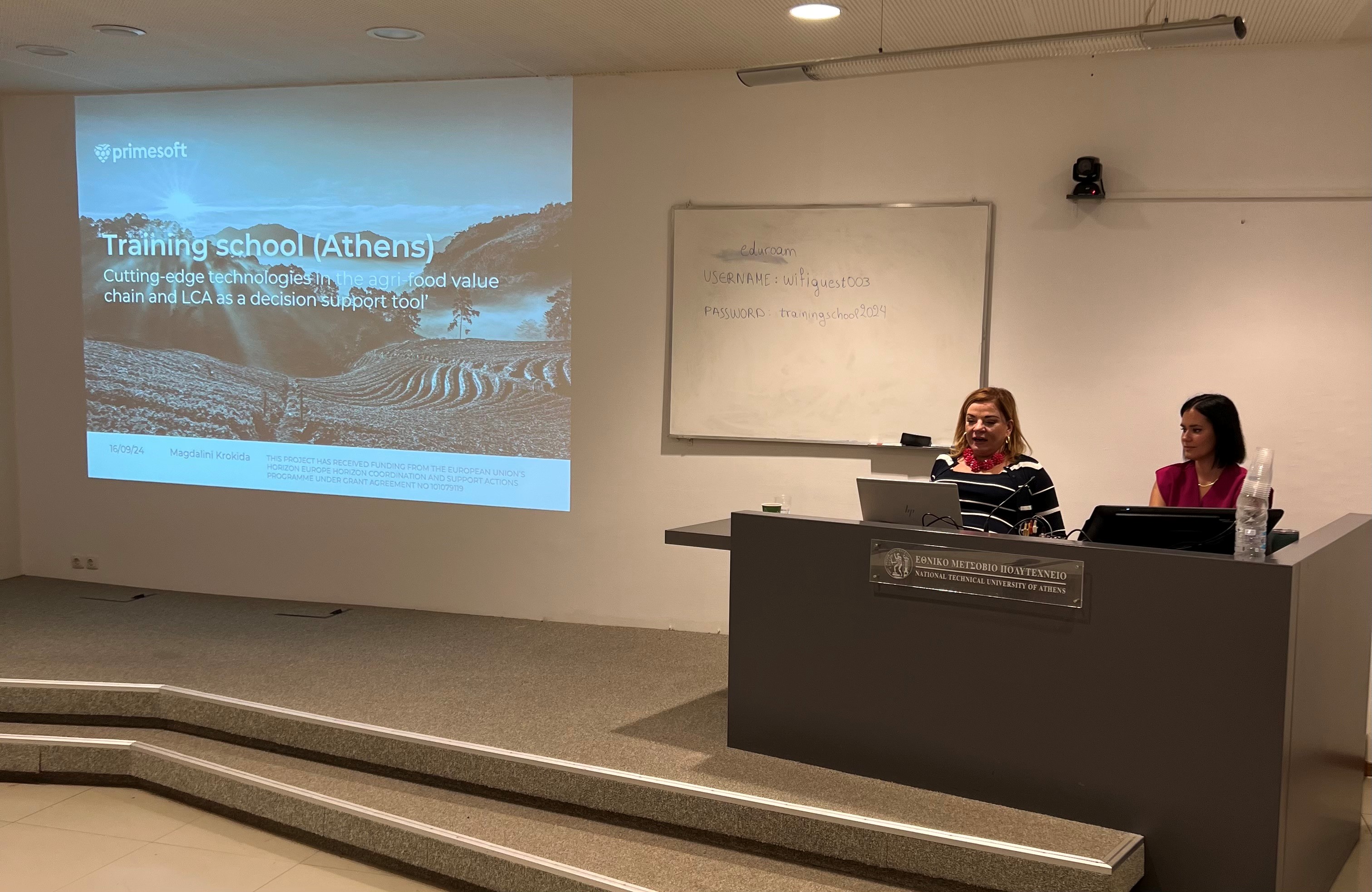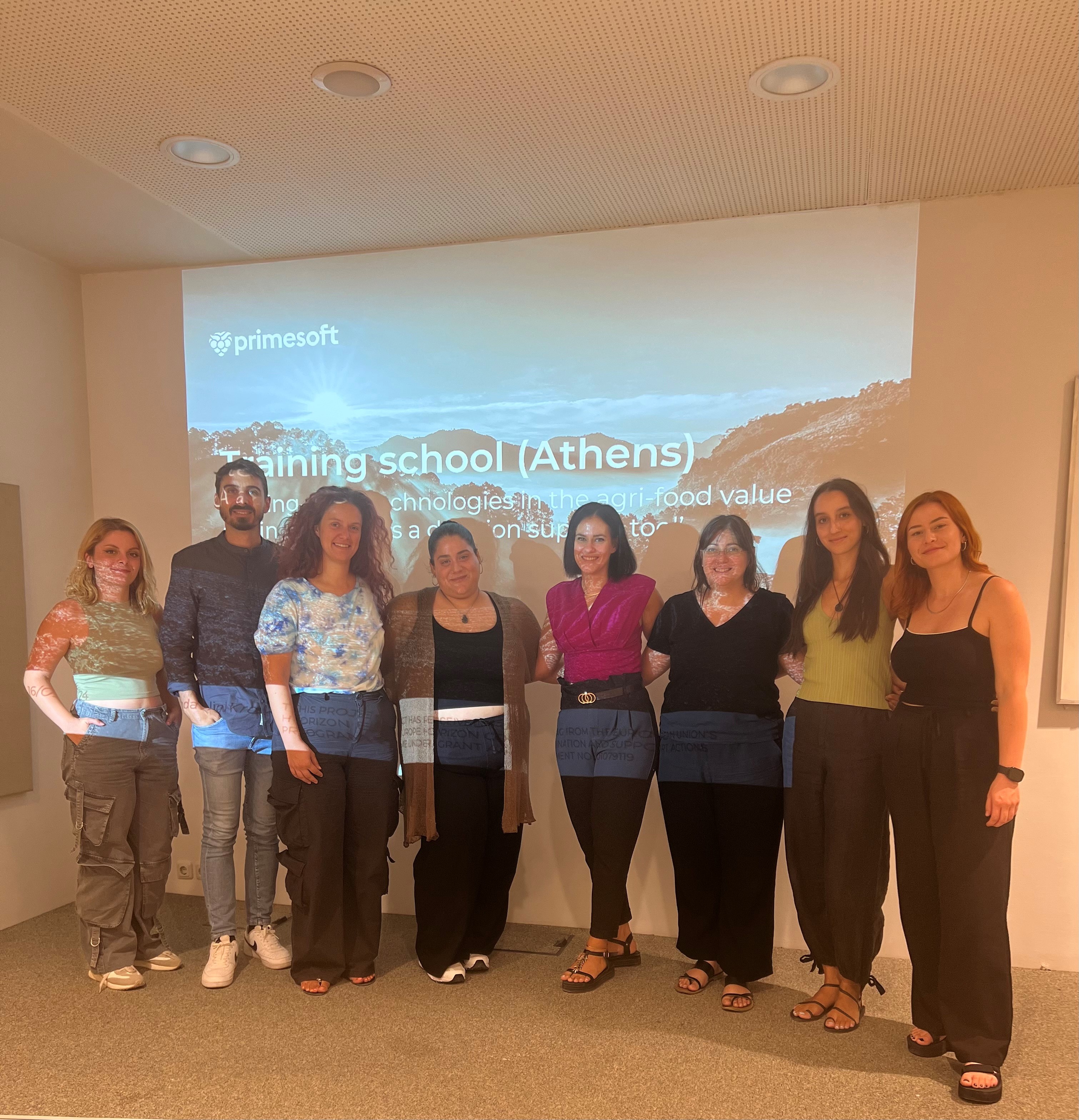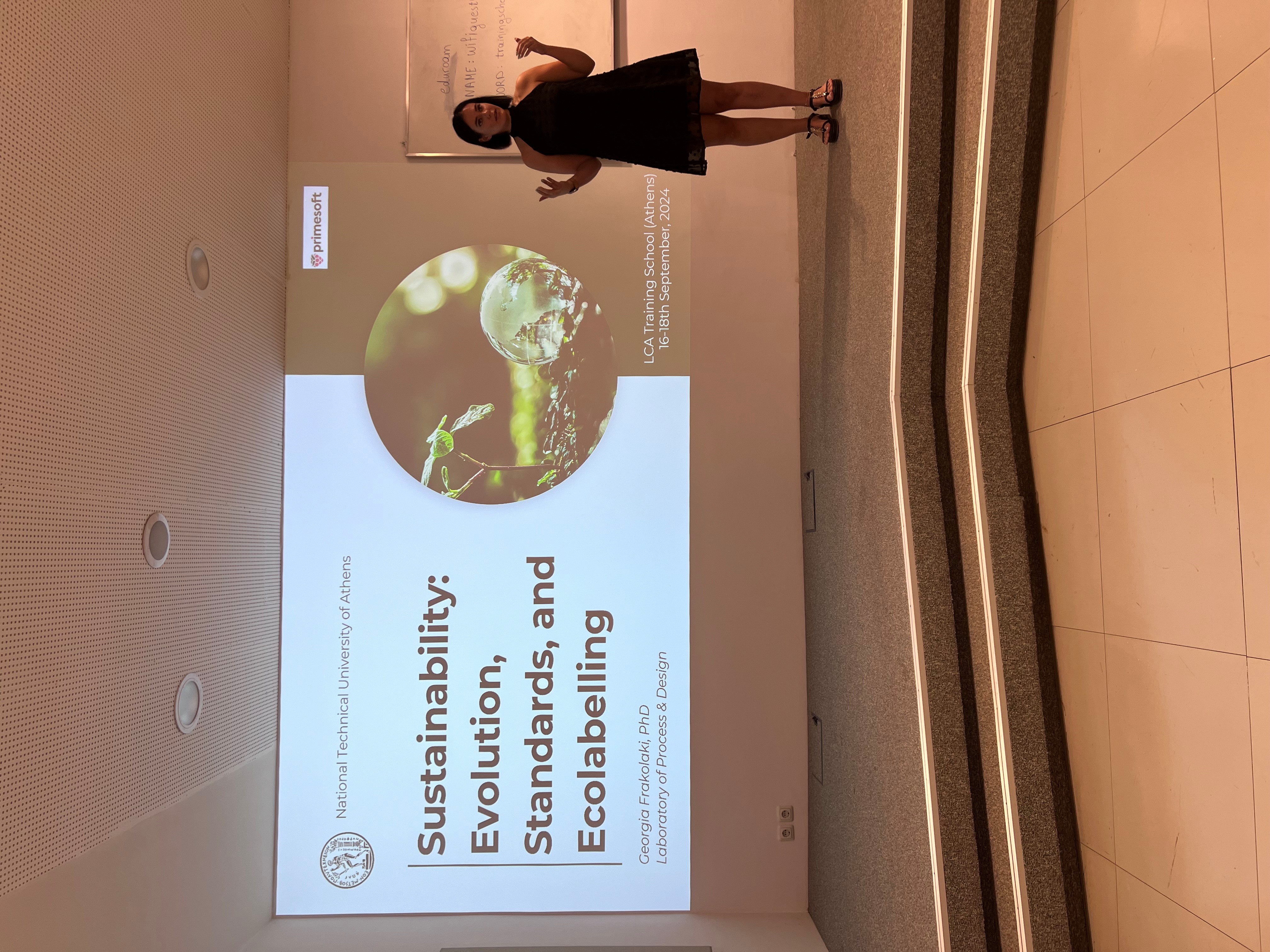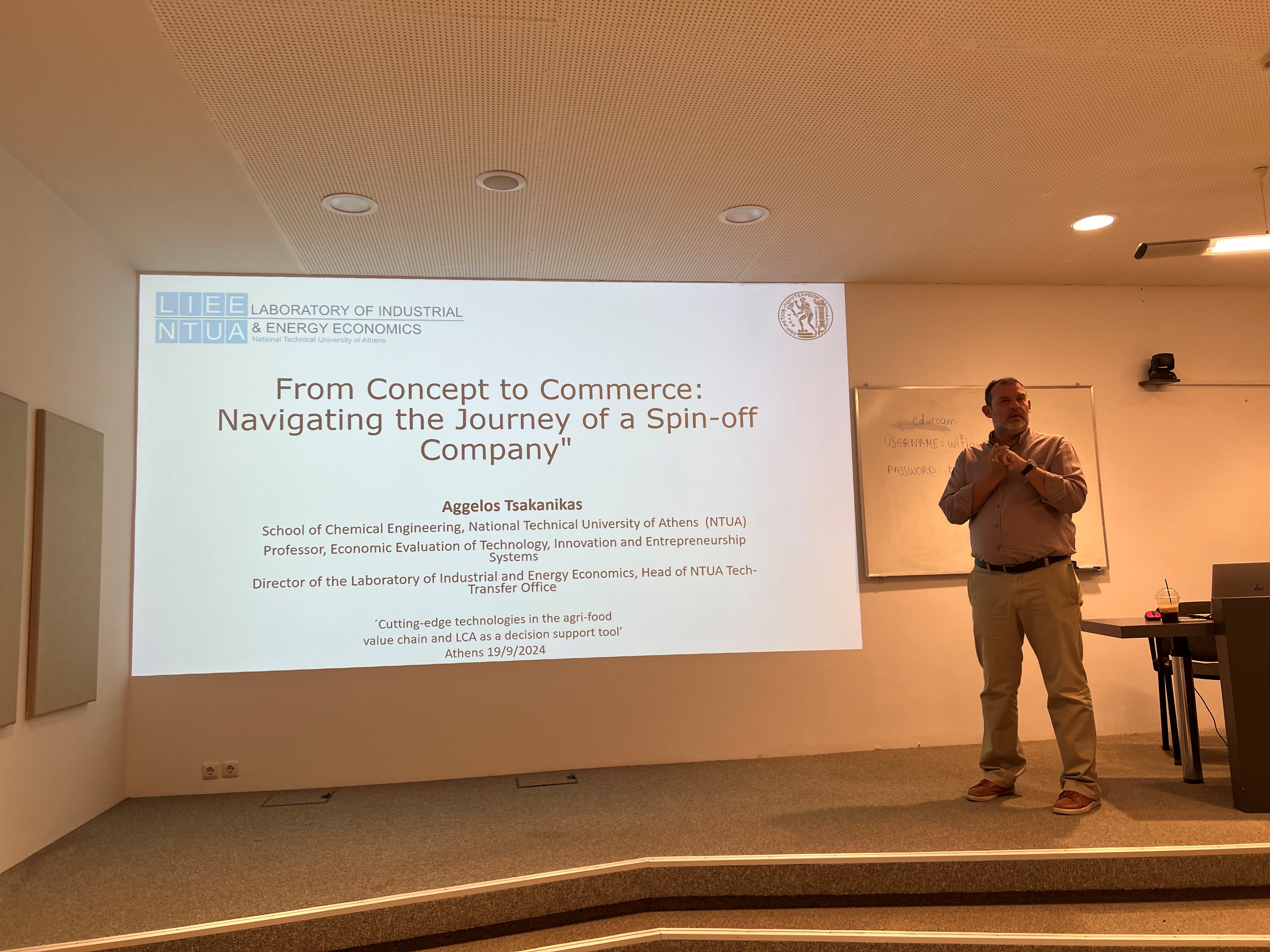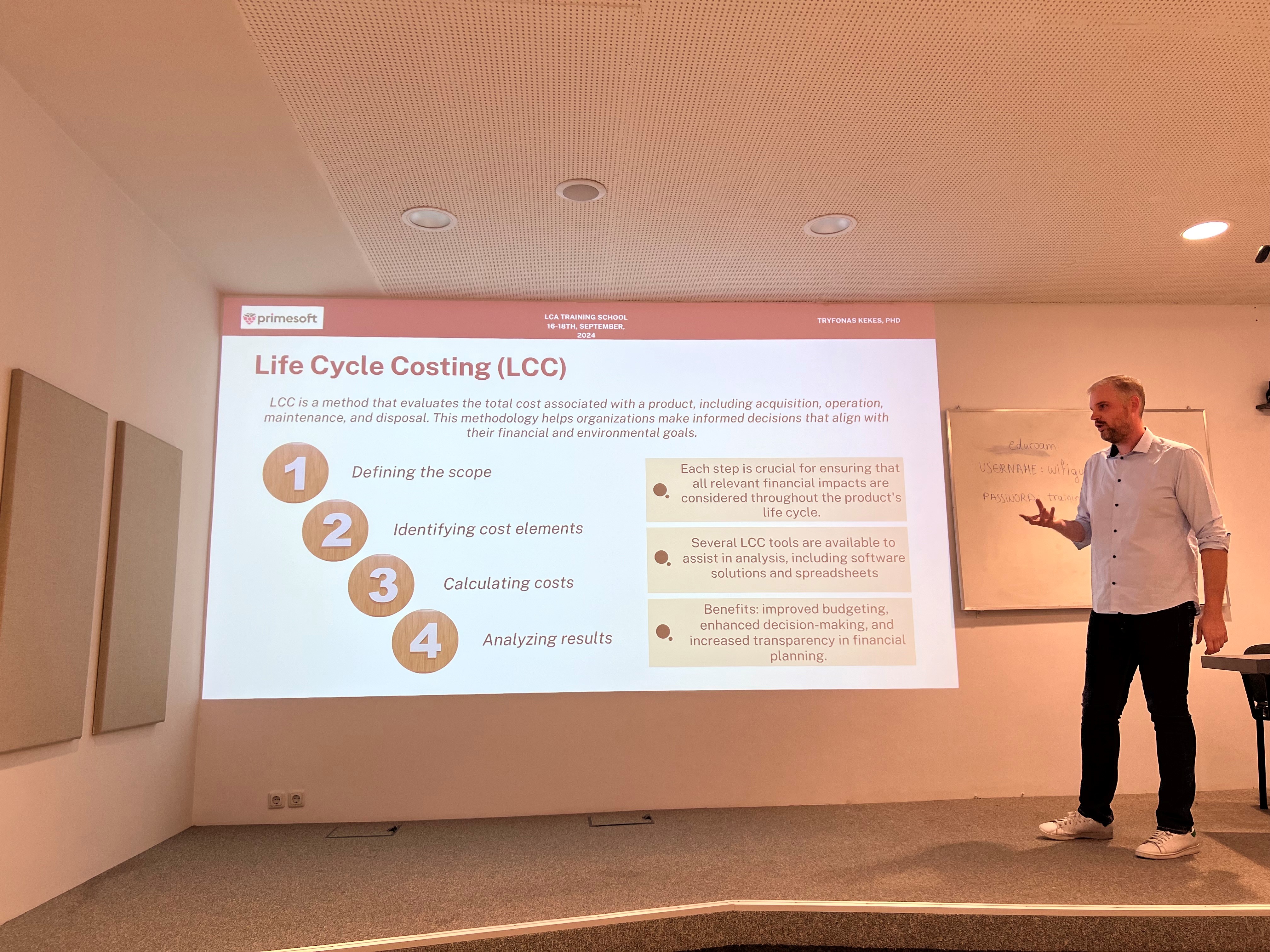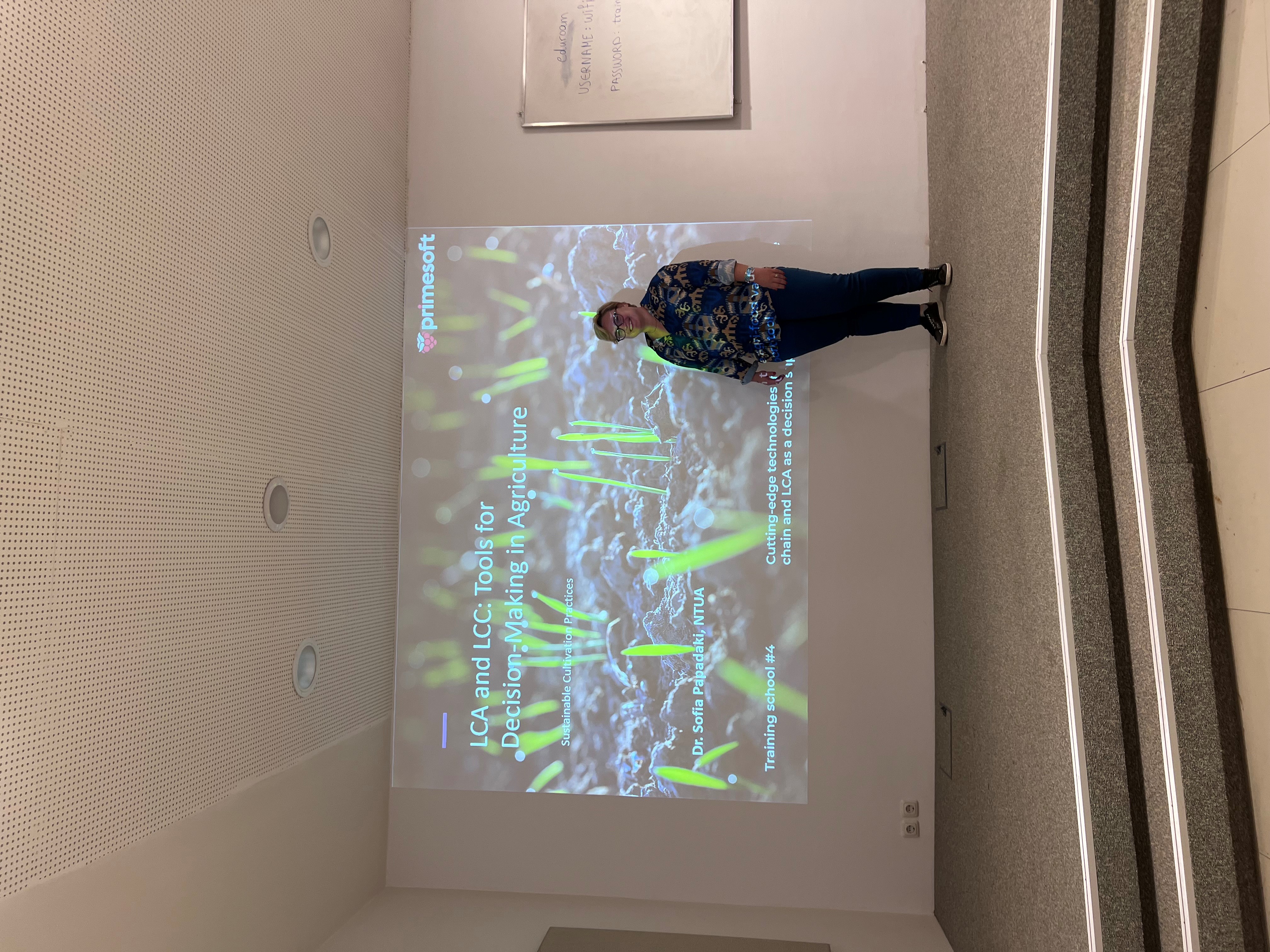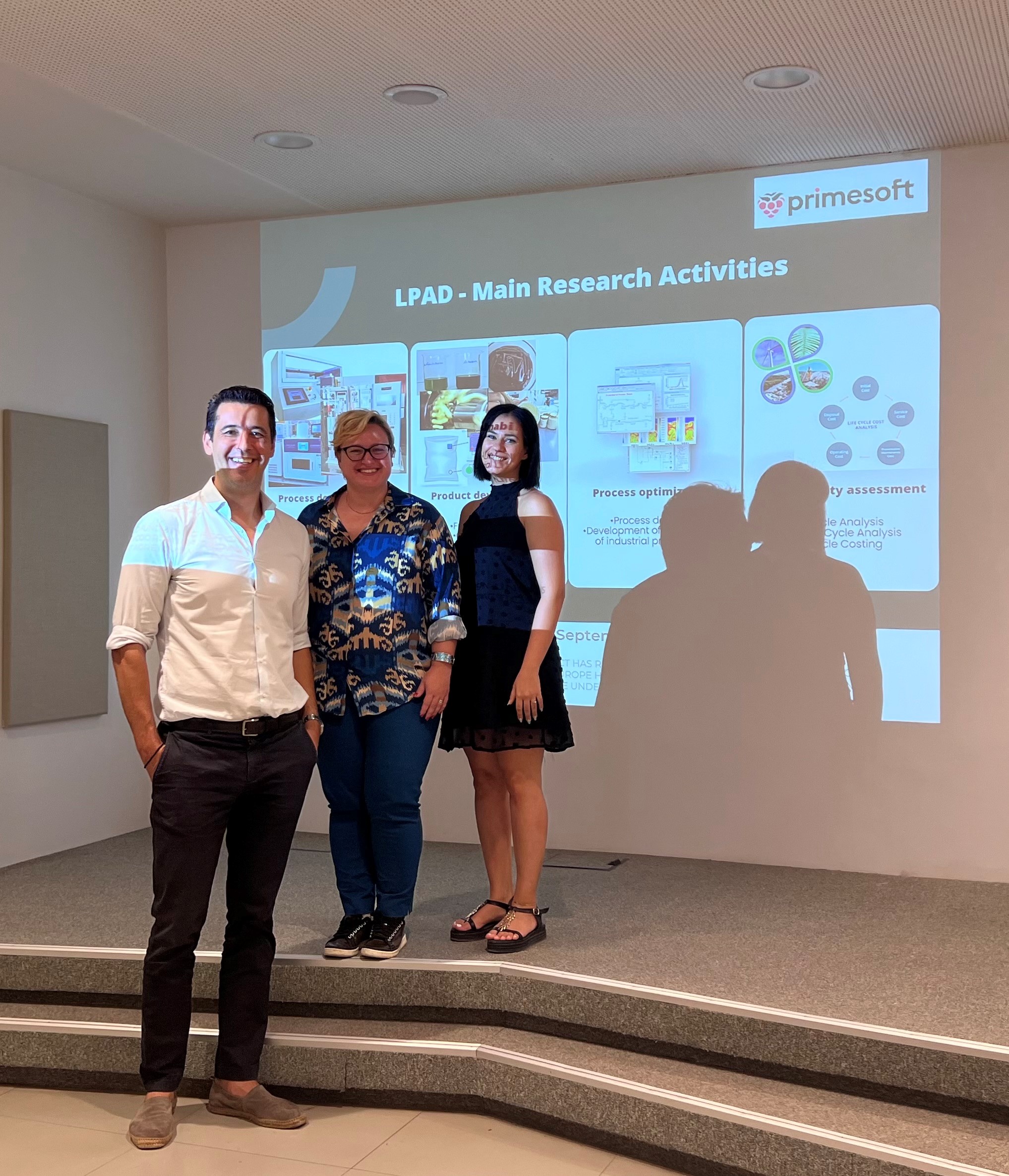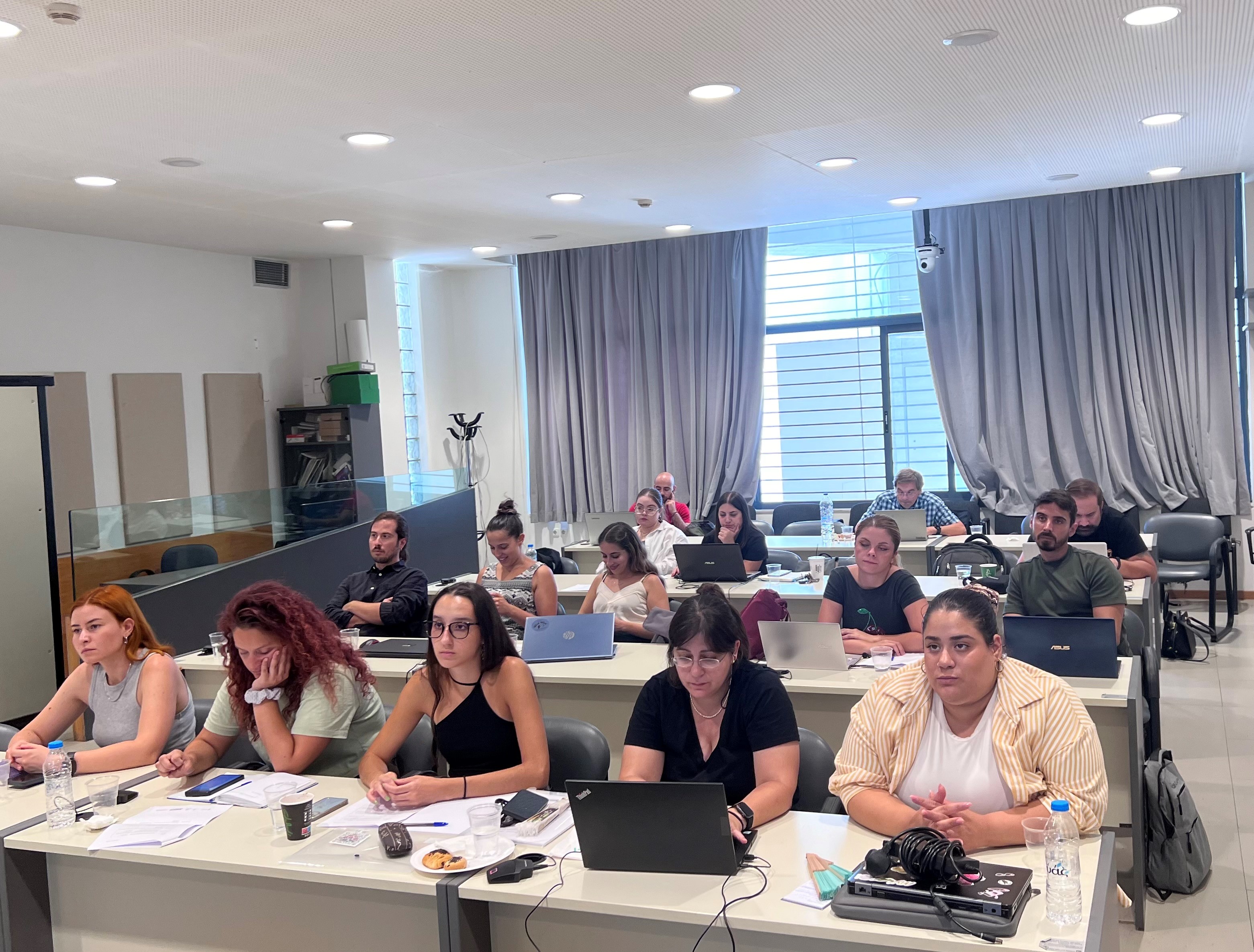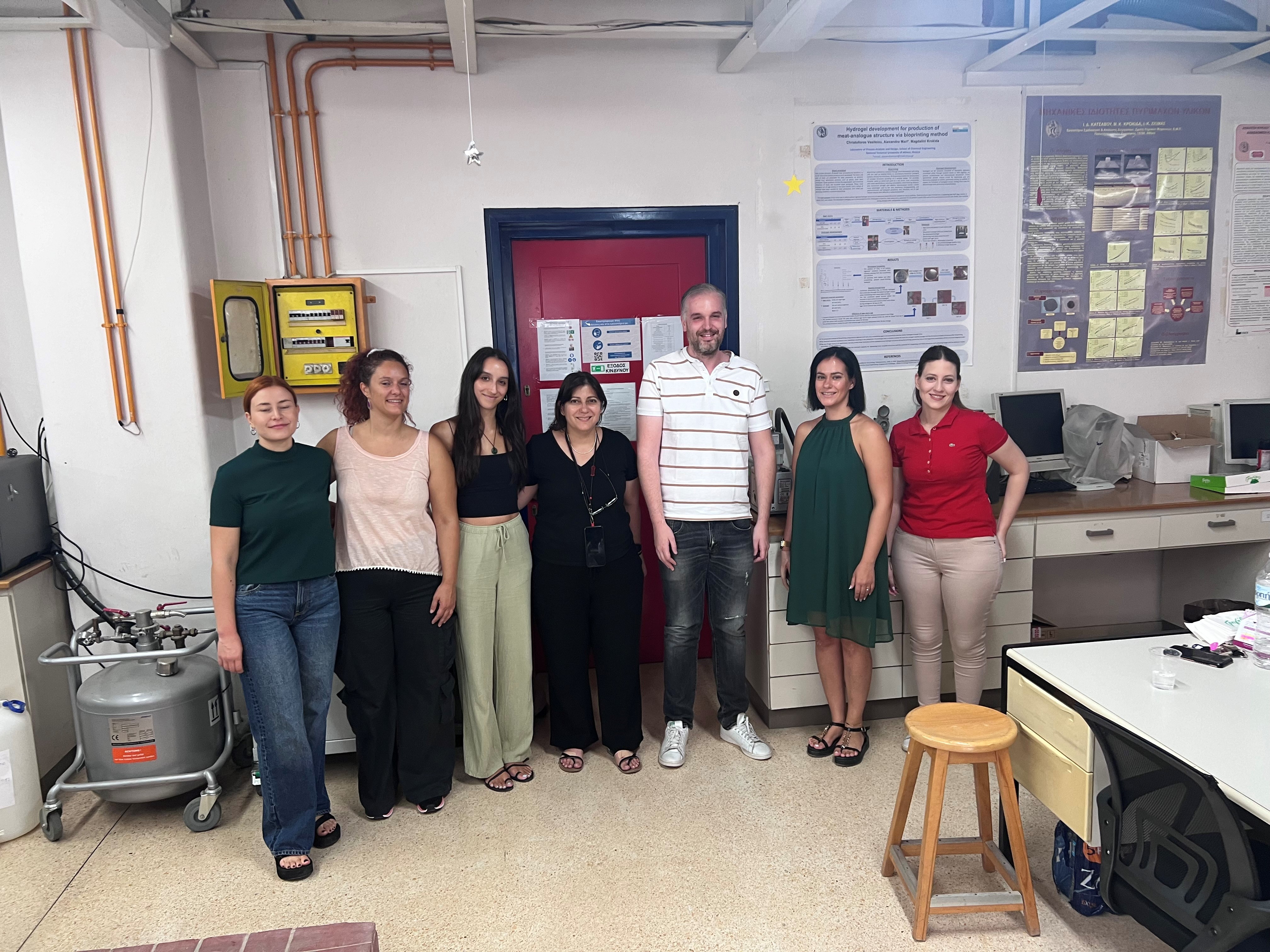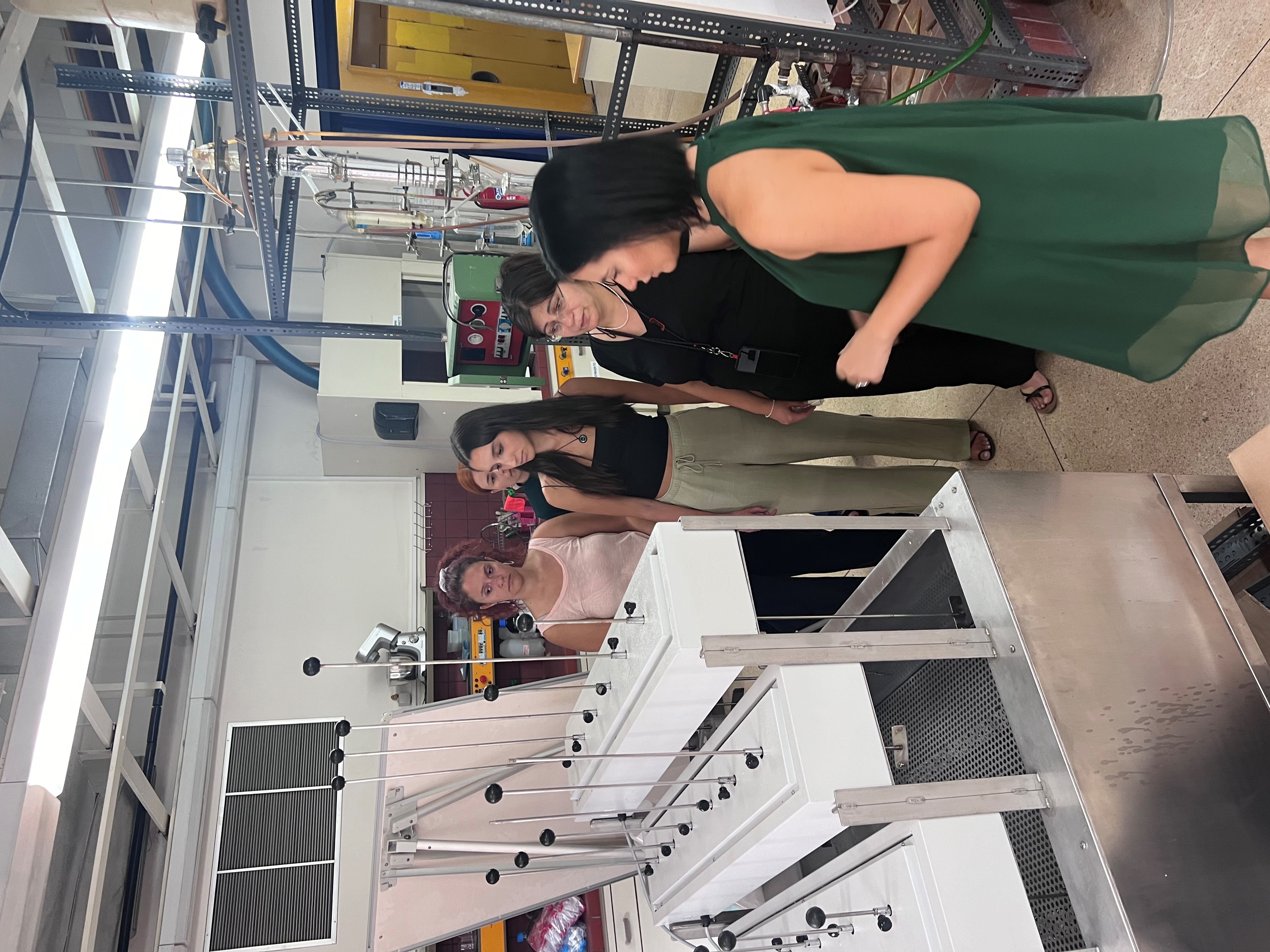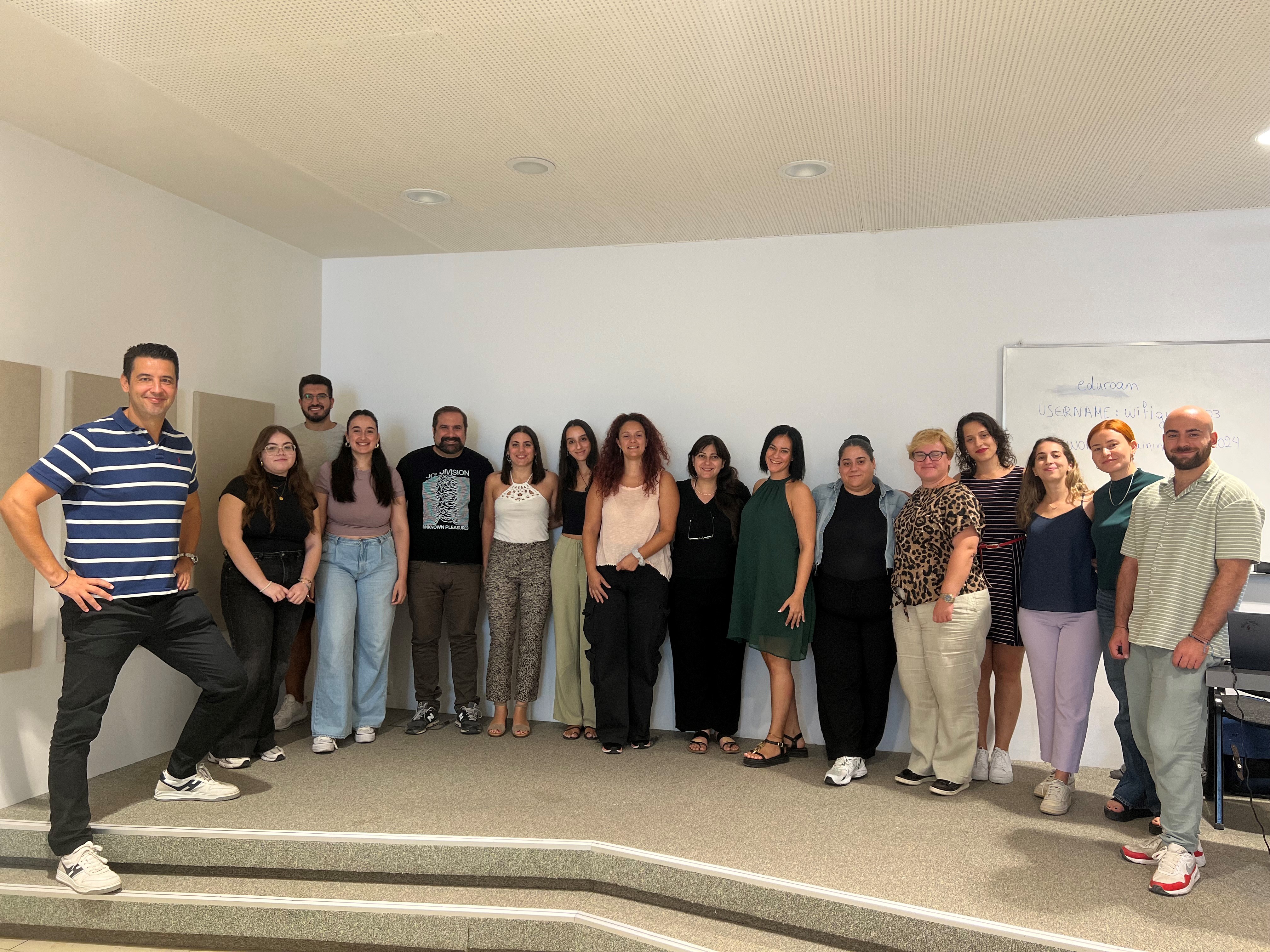
NTUA
NTUA
Training school:
Cutting-edge technologies in the agri-food
value chain and LCA as a decision support tool
The 3-day workshop took place on September 16th-18th 2024 at the premises of NTUA, Athens, Greece. This workshop covered key advancements and innovations in post-harvest processing and sustainability, focusing on the following topics:
- Post-Harvest Treatment & Dehydration Techniques – New methods in dehydration for improving food preservation.
- Novel Extraction Techniques – Efficient techniques to enhance yield and processing efficiency.
- Encapsulation Technologies – Development of novel formulations through advanced encapsulation.
- Edible Coatings – Innovations in extending food shelf-life and quality with edible coatings.
- Smart Packaging – Future trends and applications in intelligent packaging solutions.
- Commercializing Research – The journey from research to spin-off company development.
- Sustainability & Ecolabelling – An overview of sustainability standards and ecolabelling practices.
- Life Cycle Assessment (LCA) & Life Cycle Costing (LCC) – Tools, methodologies,
and practical applications of LCA
in real-world projects, including case studies and discussions on LCA tools. - Hands-on practice on openLCA software.
Speakers of the workshop:
- Laboratory of Process Analysis and Design – Opening Remarks Magdalini Krokida, National Technical University of Athens, Greece
- Advancements in Post-Harvest Treatment: Innovations in Dehydration Techniques Efimia Dermesonlouoglou, National Technical University of Athens, Greece
- Novel extraction techniques for efficiency and yield enhancement Marina Stramarkoun, National Technical University of Athens, Greece
- Encapsulation technologies for the development of novel formulations Maria Katsouli, National Technical University of Athens, Greece
- Edible Coatings: Enhancing Food Preservation and Quality Maria Giannakourou, National Technical University of Athens, Greece
- Smart Packaging: Innovations, Applications, and Future Prospects Marina Stramarkou, National Technical University of Athens, Greece
- From Concept to Commerce: Navigating the Journey of a Spin-off Company Aggelos Tsakanikas, National Technical University of Athens, Greece
- Sustainability: Evolution, Standards, and Ecolabelling Dr. Georgia Frakolaki, National Technical University of Athens, Greece
- LCA/LCC Methodology: Tools, Databases, and Systems Analysis Tryfonas Kekes, National Technical University of Athens, Greece
- Application of LCA methodology in LPAD projects Georgia Frakolaki, National Technical University of Athens, Greece
- Life Cycle approaches: Test case Angeliki Petridi, Dr. Christos Boukouvalas, National Technical University of Athens, Greece
- Discussion on the LCA & LCC tools and concepts Sofia Papadaki, National Technical University of Athens, Greece
Practical sessions
Site visit at the LPAD facilities
Persons in charge: Dr Georgia Frakolaki, Dr Sofia Papadaki
During the visit, trainees were introduced to the lab’s state-of-the-art
technologies, methodologies, and equipment. Key infrastructure was showcased,
including pilot-scale systems like the freeze-dryer and electrospinning equipment,
alongside lab-scale tools. The presentation covered a range of cutting-edge
instruments such as the Microtrac for particle analyzing, 3D printer, and
electrospinning lab-scale equipment, as well as more widely used equipment like the
GC-MS, HPLC, spray dryer, freeze dryer, texture analyzer, and other essential
devices. This hands-on exposure provided trainees with valuable insight into both
novel and conventional technologies used in advanced research and industrial
applications.
LCA - Training activity
Instructors: Dimitra Fragkouli, Angeliki Petridi, National
Technical University of Athens, Greece
In this training activity on openLCA, participants were introduced to the
fundamental principles of Life Cycle Assessment (LCA) using the openLCA software, a
tool for assessing environmental impacts. The trainees learned how to set up a
product system, define processes, and input data for environmental analysis.
Participants were guided through the process of modeling a complete cradle-to-gate
life cycle for an example product system (dairy farm), with a focus on resource
inputs, energy consumption, emissions, and waste management. They gained practical
experience in navigating openLCA's interface, accessing relevant databases, and
interpreting environmental indicators such as climate change potential and resource
depletion. They were also introduced to main challenges of the software and common
assumptions that are made. By the end of the activity, trainees were able to
successfully create their own LCA models, assess the environmental impacts of
different production scenarios, and generate reports based on their analyses. The
outcomes of the training included a deeper understanding of LCA methodology,
software skills, and the ability to apply LCA for decision-making in real-world
projects focused on sustainability.
The workshop welcomed a total of 26 attendees, along with invited speakers from outside the PRIMESOFT project, who shared their expertise on cutting-edge technologies in the agri-food sector, the concept of sustainability, and Life Cycle Assessment (LCA) as a key evaluation tool.
Training school programSpeakers and Abstracts
